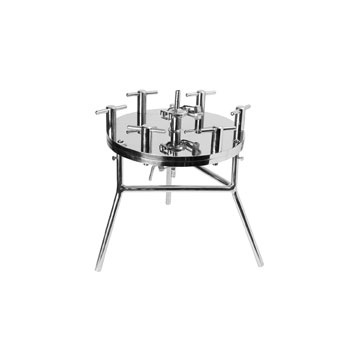Membrane Filtration System
Membrane filtration is an advanced, pressure-driven technology that effectively separates particles and contaminants from liquids and gases to enhance water and air quality. It uses a semi-permeable membrane, which acts as a selective barrier, allowing smaller particles to pass through while blocking bacteria, and viruses. Membrane filters can be made from organic or inorganic materials like nylon or Teflon with fine pores to optimize filtration efficiency.
50–85% filtering surface coverage
High flow rate capacity
Uniform pore size distribution
Cost-effective
High porosity
High temperature resistance
The application of membrane filtration systems across various industries, including: Used for sterile filtration of pharmaceutical preparations.

